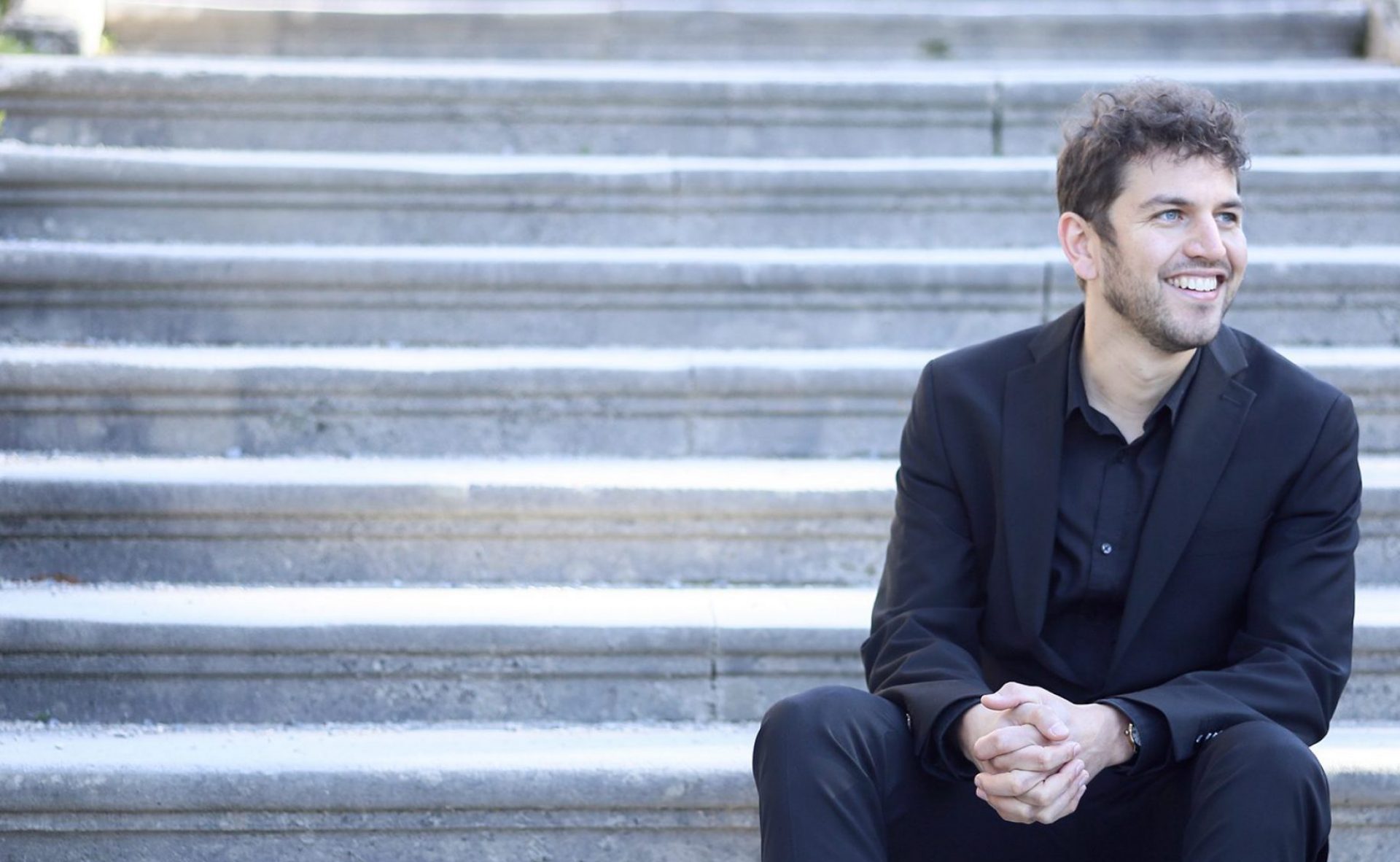It was a pleasure to speak with Alpesh Chauhan for this interview. Alpesh and I both grew up making music in Birmingham, and he was recently appointed Music Director of the innovative Birmingham Opera Company, having conducted their production of Shostakovich’s Lady Macbeth of Mtsensk in 2019. Alpesh also discusses his other operatic experiences, including his work in Italy, where he was Principal Conductor of the Filarmonica Arturo Toscanini in Parma.
Spending time as a Conducting Fellow at the City of Birmingham Symphony Orchestra (CBSO) helped to launch Alpesh’s exciting symphonic career, which encompasses multiple guest appearances, and includes his recent appointment as Associate Conductor of the BBC Scottish Symphony Orchestra.
For the German version of this interview, please click here.
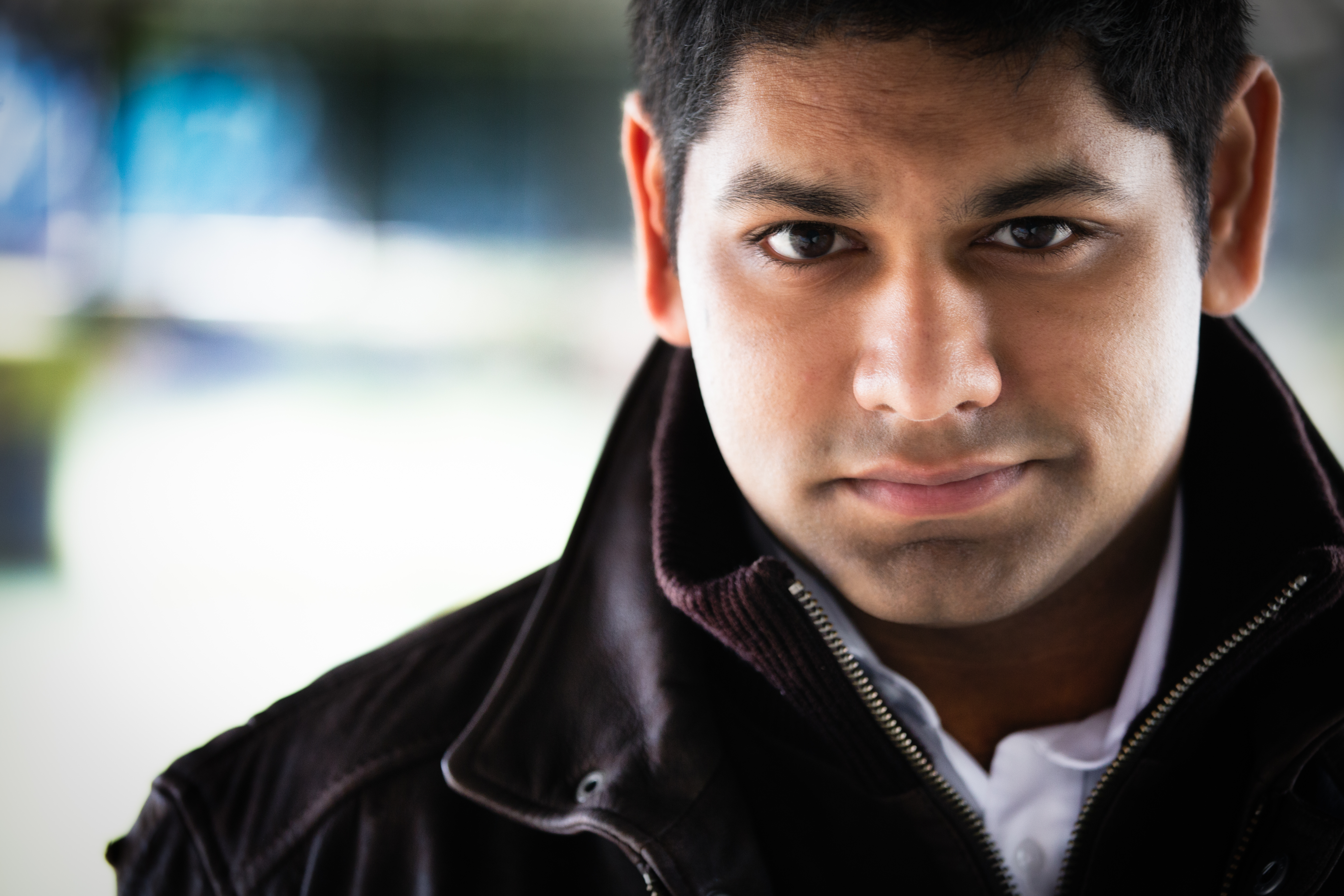
What I like generally in life is variety. The great thing about opera is it is a complete art form. You have everything in opera, from poetry to literature to art, to the dramatic, the music, and it’s just such a complete form to be in the middle of.
If you had not become a conductor, what career would you have chosen?
A pilot.
If you could have a meal with a famous person in history, who would it be?
Shostakovich!
Who is your favourite composer?
Bruckner.
Favourite opera?
I’d love to perform Der Rosenkavalier. I’ve never done it, but I’d love to.
Can you describe your Hot Toddy or other drink in three words?
It’s called ‘Happy Mondays’! Lemon, ginger and pepper. A pick-me-up kind of tea!
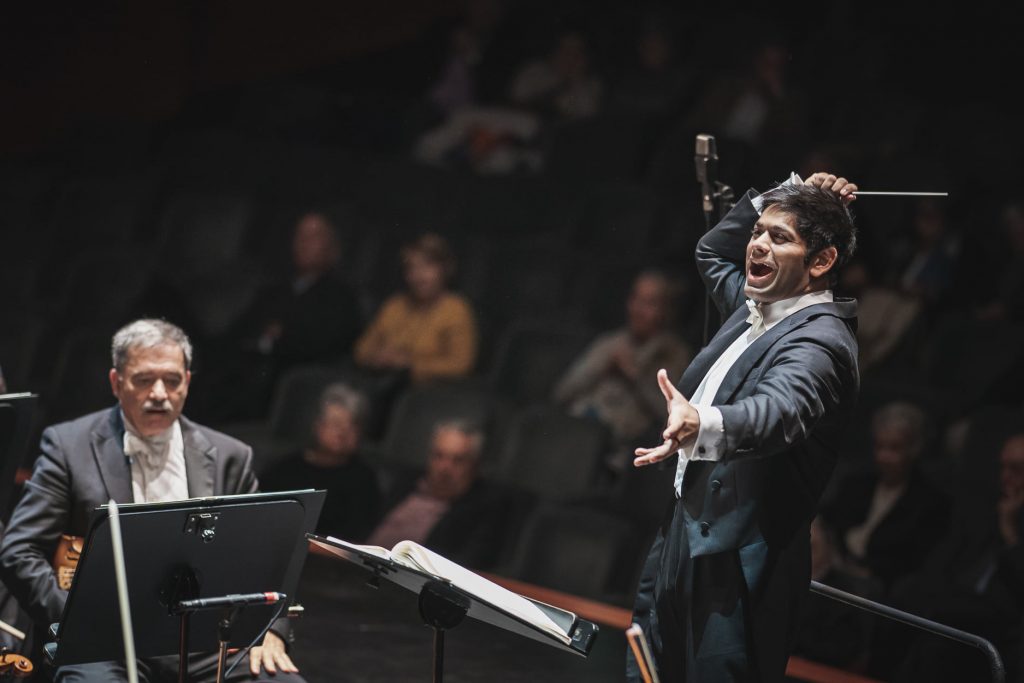
It’s a big world to go into, and if you’re used to the symphonic world, which moves at the rate of lightning, the opera world seems much slower, because there are big chunks and there are a lot of people to carry.
How did you first get into conducting opera, and what do you like about it?
At Birmingham, as part of the Assistantship and Fellowship1 that I had there, Andris Nelsons was of course the conductor at the time, and his thing was big opera, big forces and works. So I assisted him there with Der Rosenkavalier, not staged but in concert. We also did things like Parsifal, and my first opera performance was actually at the Musikverein, my debut, doing the thunder in Parsifal! I was sat at the back of the double basses with a sort of electronic desk. It was quite funny.
With my position in Parma, which is sort of the opera capital in Italy, the theatre there is very traditional and it’s the region for Rossini and Verdi. They do it quite religiously, so there’s a way that those operas are done, which I find quite difficult actually, when you have to fit into a box. So we never did opera together, but we did lots of overtures and things that we did in community type concerts, aside from the main season. The orchestra would comment that they’d like certain things I did, because no one ever did it any differently. On Youtube you can find videos of conductors conducting in Parma, and within the first few bars the audience is booing or shouting ‘tempo, maestro’!
I started a relationship with the Teatro Lirico in Cagliari, where I did my first opera, which was Turandot in 2017. Puccini was the thing for me. Tchaikovsky was my favourite composer in my mid-teens. From Tchaikovsky it developed into Puccini, which was just something else. I thought it would be so great to be a part of this world, so when Turandot was offered it was almost like a dream for me.
It was a huge challenge as it’s such a juggernaut. My repertoire is usually very romantic symphonically, so actually being offered to do Turandot was a great thing for my first time, where you’re hungry to do all this big stuff. That was a defining experience, because they gave a little bit more rehearsal. It was a revival, but the artistic department gave me enough time to do what I wanted to do.
So that was very useful, and it was just a very happy experience, because I think the first opera can at times not be happy. It’s a big world to go into, and if you’re used to the symphonic world, which moves at the rate of lightning, the opera world seems much slower, because there are big chunks and there are a lot of people to carry. You can’t just switch between scenes like in a symphonic rehearsal. So that was my start.
What do you like about opera in comparison to the symphonic repertoire and putting on symphonic concerts?
What I like generally in life is variety. The great thing about opera is it is a complete art form. You have everything in opera, from poetry to literature to art, to the dramatic, the music, and it’s just such a complete form to be in the middle of. That does give you more stress because you’re controlling a lot more people, when you realise that at any one point of Turandot, three hundred, maybe four hundred people are looking at you on a monitor somewhere, including lighting or staging people getting ready to fire a canon! You always have that in your head, and sometimes you can’t be as free as in a symphonic programme, where I can sometimes just throw something in a certain direction based on how I’m feeling that night.
In opera of course every night is completely different, but in a very different way to symphonic performance. It comes from the bodies of the singers and how they’re feeling, how their instrument is behaving…or not behaving! When I did Turandot again in Valencia, I remember Pong became ill. Pang came up to me and just said ‘Pong isn’t feeling so great today.’ We had no rehearsal and I just had to make it as clear as I could to the orchestra through my gesture to explain the situation.
Do you approach a score differently if it’s operatic compared to orchestral?
The beginning process for me is the same, with the difference being that you add in the text. That’s something where if there is a recording, watching it or listening is useful, but then I leave it. The same with ballet. You need to understand what’s going on and how. Then I translate the text, because instrumental lines have to be co-ordinated with the text for accents and all kinds of things. The text should be the most important thing. Then I go on as normal, so marking in terms of lines and how I want to get from one section to the other, and which voices are doubled.
With the Shostakovich I did, Lady Macbeth, more so than with the other operas I’ve studied, I sat at the piano, because there was a massive issue of ‘how are these singers going to pitch, or how am I going to pitch for them?’ Actually then finding those links was really useful to do on the piano. Then studying lines, dynamics, phrases. Finally, you go through again, and that’s when you’re trying to connect things as much as possible.
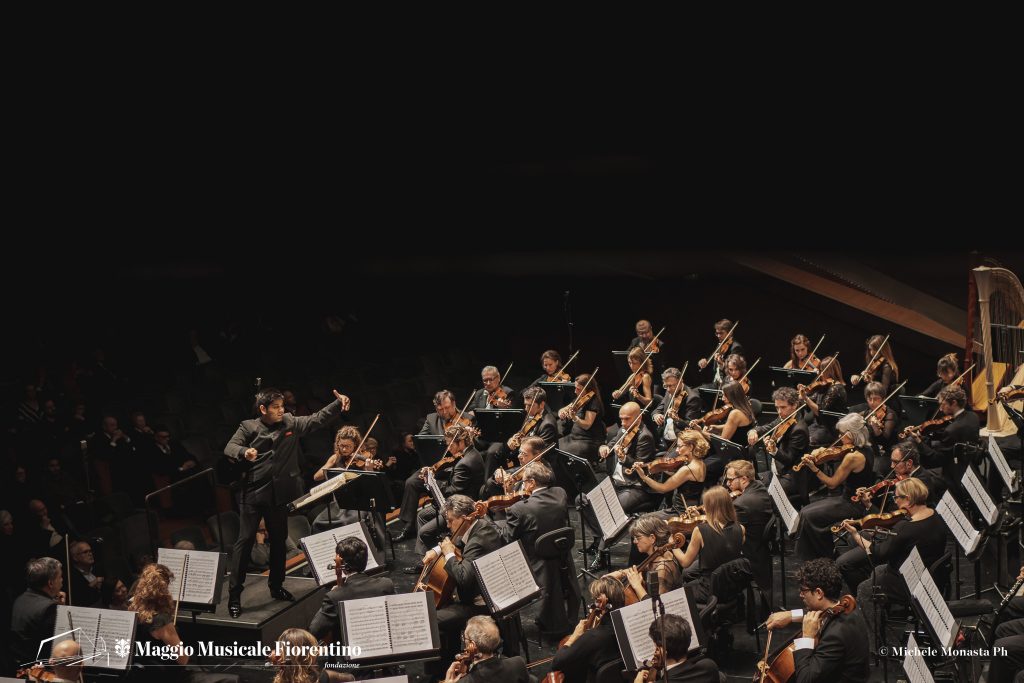
If I didn’t understand something, or didn’t think it worked, we would come to a compromise, an understanding or an arrangement. You do one of the three and find a way through it.
Can you tell me more about the Birmingham Opera Company performance of Shostakovich’s Lady Macbeth? What were the challenges and opportunities?
Birmingham Opera is a crazily exciting concept. The chorus is made up of a mixture of people, from teachers and professionals, to people who have maybe not had the best starts in life, people who are not necessarily thriving, all thrown together. No class issues, no religious things. It’s a real representation of Birmingham. Most of them won’t even know what an opera is, won’t have experienced one before, either by listening or being involved. We constantly have an influx of new people so they are always fresh, which is important.
The other thing is that it is Birmingham, the city that I was born in, and something which is so community led, in the city that I still care about. The more I travel away from Birmingham, the more I realise I want to give back there where I can. The soloists are always from all kinds of places, not just British, and a mix of ethnicities. [The director] Graham Vick is the next thing, a god in the opera world, always thinking out of the box, but always to great effect. Never doing anything crazy for the sake of being crazy, but to connect with people and to portray the story or narrative as best as possible. I think he’s always very successful at doing that. He’s very passionate about what he does and how he does it. So this was a big draw, and the CBSO is of course the orchestra that they use.
The experience was incredible. Graham doesn’t come with a fixed idea. It’s always in a random venue. They’ve used an aircraft hangar, a disused warehouse, and a tent in a park. The Shostakovich was in an old, disused dance hall. We got in on day one and the singers arrived, and all the time you could see the thoughts going through Graham’s head, and the designers were there too. We were all there making it from the ground up. Graham is very open, and it was very humbling that we could work so easily together. If I didn’t understand something, or didn’t think it worked, we would come to a compromise, an understanding or an arrangement. You do one of the three and find a way through it. That always means you’ll be on the same page by the end of it.
I’m coming from the symphonic world, which is very different, and one of the things that I dislike the most about opera, in fact I would be as strong as to say I hate, is that the music and the action are always so separate. The advice to young conductors is always keep to your side: ‘make sure that the music is good, and let the director do their stuff.’ I understand that but I disagree with it heartily. If I’m doing a concerto with a soloist, it’s for both of us, and we’re both going to get killed if it goes wrong, not just the soloist. When it comes to opera, maybe I’m naïve, but it’s a complete art form, and I always say to the director at the beginning: ‘I will give you time if you give me time’. When it comes to Stage and Orchestra rehearsals, I give them a bit of time too. We need this to be a two-way thing.
Do you have a specific vision for Birmingham Opera Company?
It’s very collaborative and Birmingham Opera Company is now on the map, and it has been for a number of years now. I grew up seeing it as a youngster. We attack big works, but they have to be relevant. Its importance isn’t in just doing princess stories. We do them if we find a relevance to Birmingham. But it’s got to be relevant to the people. Opera can connect with everybody and should. That’s the difficulty.

There’s no point at which a person in Birmingham would say to me ‘it’s so good to see an Indian person at the top of Birmingham Opera Company.’ That is Birmingham!
How can we improve diversity in the opera industry and amongst audiences?
What Birmingham Opera Company does is what is necessary everywhere. In a recent interview I was asked about what it’s like being a BAME person appointed to the role at Birmingham Opera Company, and me and the [Birmingham-based] interviewer Richard Bratby just chuckled to each other, because this is Birmingham. There’s no point at which a person in Birmingham would say to me ‘it’s so good to see an Indian person at the top of Birmingham Opera Company.’ That is Birmingham!
If you think back to the CBSO youth orchestra there would be a complete mix of people. My school form group in Handsworth had maybe two or three white people in it. It was actually music that took me away from being just around the Indian community. I think Birmingham was a model for other cities in the way it addressed music and culture. It went to every kid. There was a complete mix of people in the population but it doesn’t single people out, and subsidised where it could.
My lessons were subsidised when I was younger, so my parents didn’t have to pay too much. They still had to pay, but there was help. Also when they saw people like me were keen, they offered a certain percentage of kids an extra twenty minutes of teaching for free from Birmingham Music Service. They don’t have the money to do that now, but we were lucky that it could go out to whoever needed it from whatever background.
We have to go out to more people in general, going to more communities. Birmingham Opera Company is going into communities now, and after the COVID pandemic is done, they will be back going into supermarkets like Tesco and Sainsbury’s, and singing in the aisles, by the checkouts and by the doors. If they’re not allowed in due to restrictions, they’ll go to the car park and sing there instead. That’s the important thing of being relevant to people. You have to be out there in the community.
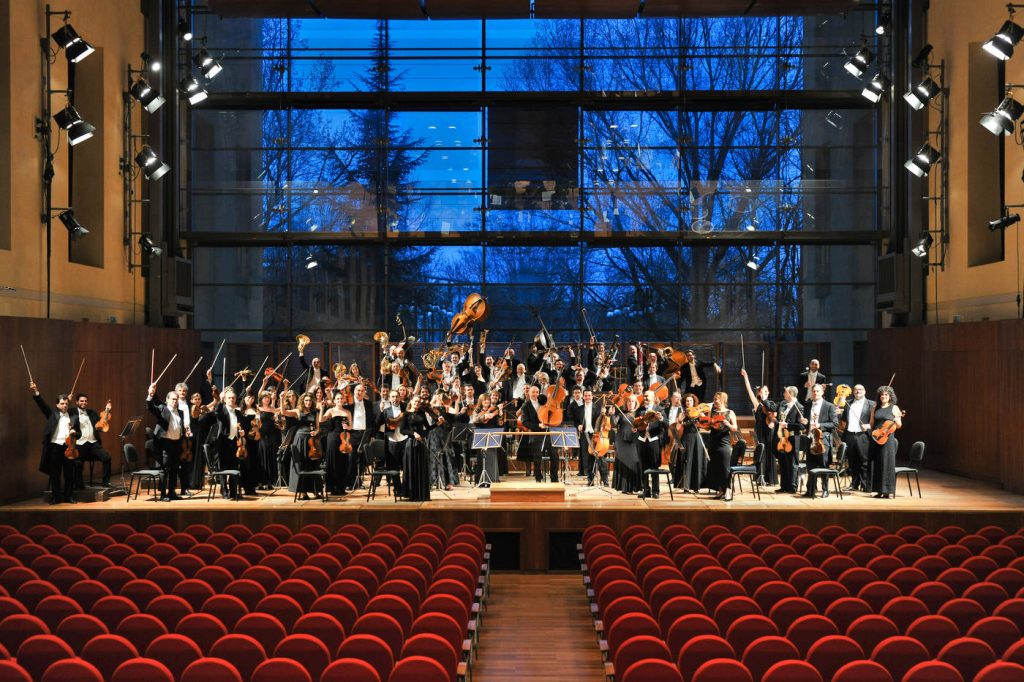
How does working in the UK compare to Italy?
The Italian traditions I mentioned earlier were a difference. I don’t mean this in a bad way, but even the Puccini was almost veering on a Classical style. It was very clean and clear-cut, and they weren’t moving or expanding. To draw that out took some work, but the orchestra was ready to do that because they feel Puccini, and they felt ready to burn that fire.
In the UK I guess the difference is time. For the Shostakovich, we had only two days of orchestra-alone rehearsals, with six hours per day, so a normal two day schedule, but that was it.
British orchestras are so fast. Of course with every orchestra for everything, if you could just have one more day, it would make the world of difference, and would give comfort to players. I never used to see players so stressed in orchestras around Europe, but in the last two years, I’m seeing players in various orchestras actually stressed, and people coming up to me and saying ‘Alpesh, we really need every minute of this rehearsal’. It’s not the fault of the orchestras or the promoters, but because of lack of funding across the board, there’s not the money to subsidise anymore that should be coming from the government and from the councils, and that’s where places are suffering and they can’t give the same time for focus, which is sad.
I think surrounding yourself with people who can support you is essential. My objective is to surround myself with people who can help me, because opera is new for me as well.
When you’re casting, what do you look for in a singer?
I’ve only done casting of singers once, so that is a very new world for me. It’s very interesting because if I was in an orchestral audition, we would be looking for the best player; that’s it, nothing else. With opera I didn’t necessarily appreciate that together with the director, you really must find someone who can bring the music and the character parts of the role together, even in an audition environment. Graham was working a bit with the singers as well, and it’s interesting to see how people react to that, because they do have to act as well.
It’s nothing to do with their appearance, but it’s how they take direction and how they take opening up or freeing up, because they’re obviously auditioning for a certain role. Sometimes that role has to be playful, sometimes outrageous, sometimes mean. They have to bring that in the room and show it. It’s really tricky, especially having the conductor and director in the same room. The more people I speak to, the more I hear that it’s the directors who do most of the casting these days. But if I’m doing an opera, of course I want to be involved in the casting!
What advice would you have for young people interested in conducting opera?
I do like the route that I took, from symphonic repertoire and then branching into opera. If you’re coming from the opera world already, and have some knowledge of how the voice works, or you’ve coached singers, or are really able on the piano, I think getting into it young will feel quite natural. For me it wasn’t that way, but I think for me coming from an instrumental point of view and developing more as a musician, as well as growing my repertoire, getting my style and technique, and then going across and doing opera was good. The most important thing is then not to rush with it. The amount of times I say no to opera is quite big, and I think that’s right. It’s got to be important.
Andris [Nelsons] always used to say, if you don’t know about singing, don’t profess to. Learn about it, speak to singers, speak to their teachers, and just learn more about how that works. But I think if you’re not from that world, and your grounding isn’t from singing or as a repetiteur, then it’s really difficult.
Language is also important of course, and if you don’t know it so well, then I would also say that getting an assistant who is an expert in that is useful. I’ve had some really great assistants who have been very well placed. I think surrounding yourself with people who can support you is essential. My objective is to surround myself with people who can help me, because opera is new for me as well. You need people who are going to help you to give the best possible final product.
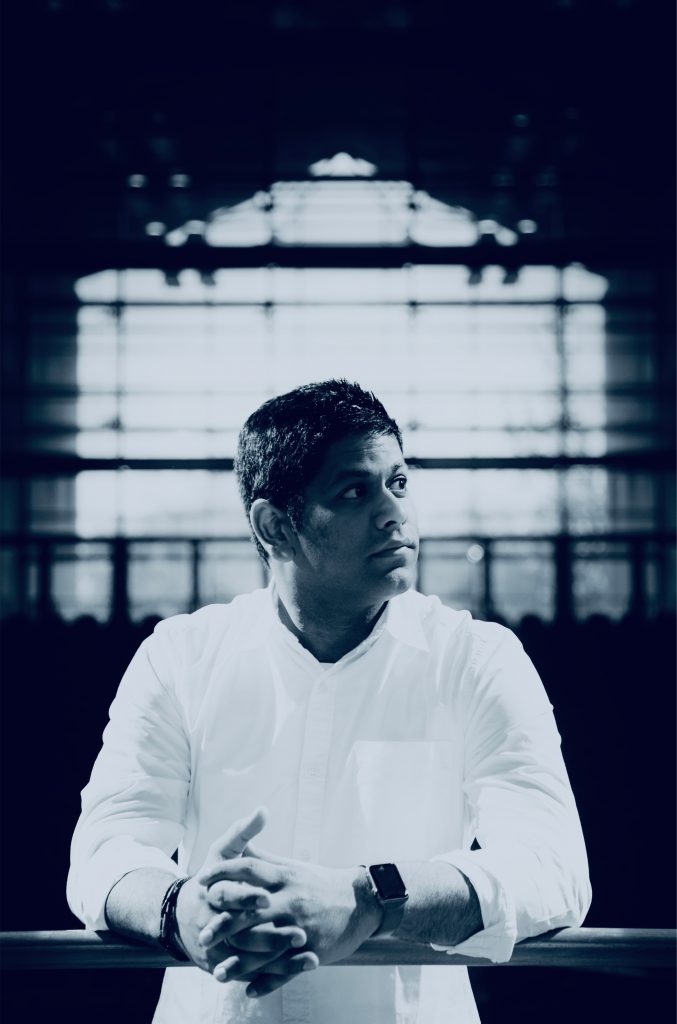
From my experience, when you get people into a symphonic concert or opera who haven’t been to that kind of stuff before, they love it, no matter what, because its live music, and live music speaks to people.
Where do you see opera going in the next 100 years?
God knows! Depends how many Covids we get! I think that change may need to happen in some form, but the way that Birmingham Opera Company does it, is that they don’t touch the music, and they don’t touch the level of the music making, which is at the highest level. All they do is to find a way of doing it that is relevant to the people. From my experience, when you get people into a symphonic concert or opera who haven’t been to that kind of stuff before, they love it, no matter what, because its live music, and live music speaks to people.
Most of the work is showing people how relevant opera is to them and that’s something Birmingham Opera Company has down to a tee. Provided the funding keeps coming, that’s the work they will keep doing; going to supermarkets and showing why opera is relevant, going to people and showing why they should go to an opera performance and what is special about it, or how the story relates to them. We’re not changing anything there and it’s not about ignorance, it’s that we’ve never gone out there enough and made it relevant to people. So I think the change has to happen in that way, and then you might get people through the doors. When you get more people through the doors, you can lower performance fees, and when you can do that, then you can really be successful.
Notes and Links
- Alpesh was the first Conducting Fellow appointed by the City of Birmingham Symphony Orchestra, a position created to mentor and support young conductors starting out in their careers.
- You can learn more about Alpesh, including his upcoming engagements, at his website here.
- The City of Birmingham Symphony Orchestra (CBSO) is celebrating its 100th birthday in 2020, and is Birmingham’s top professional orchestra.
- You can read more about the Filarmonica Arturo Toscanini in Parma, where Alpesh was Principal Conductor, here.
- Birmingham Opera Company have just announced that their next production, with Alpesh at the helm, will be Wagner’s Rheingold. You can find out more about them and this upcoming production at their website.
